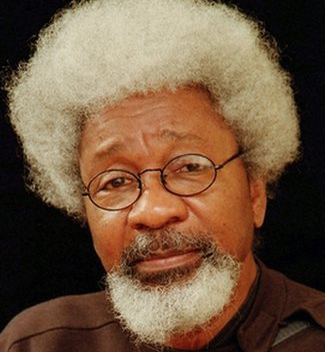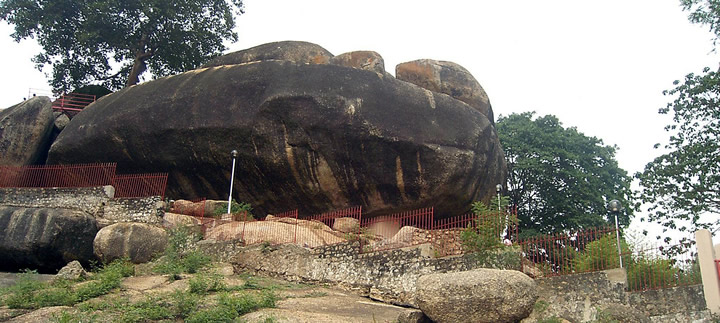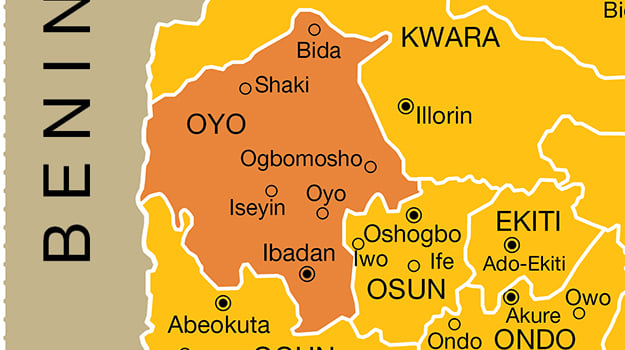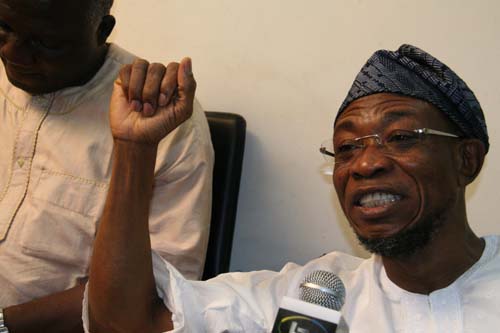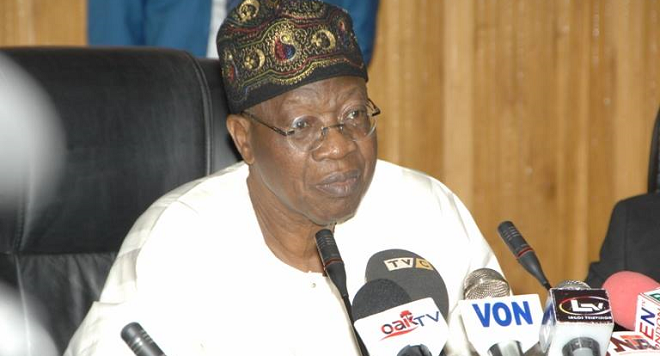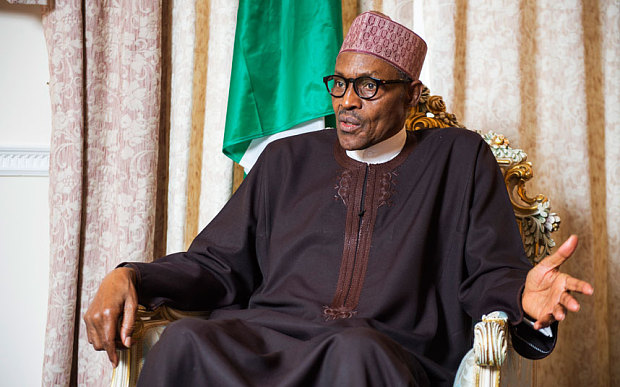“Why?” demanded my argumentative friend, “ is it always you people? “ Why do you make so much trouble? Always Ogun, Ogun, Ogun! – are you the only state in the nation?” And he proceeded to reel off a number of names of notorious “trouble-makers”, dead and living, pin-pointing their birthplaces in Ogun State.” It was a teasing, rhetorical question, no answer expected. If one had been required, I would have volunteered, as a birthday present to Ogun: Ise ab’ojumu. Sometimes Iwa ab’ojumu. A pursuit (or character) of what is right. Just conduct. The people of Osun articulate something close – Omoluwabi. Both, and a number of allied formulations, hover around that basic foundation of all humane pursuits – Justice. Perhaps we are simply more vocal, more persistent about it.
The precedent body of this mixed birthday offering is contained in a lecture that I first delivered nearly a decade ago, in Abeokuta. I shall resort to that lecture once or twice for purposes of invoking a comparative ‘state of the state’ – then and now – but only in the context of governance characterization that enables us to grasp the essence of ab’ojumu, not to make any invidious assessments. Memory is a crucial function of existence. There is much to recall, much that justifies breast beating, but also much to lament, deplore, even repudiate! Individuals make up nations. National anniversaries are not that much different from the individual, being, for some, not merely calendar notations for jubilation, but also pauses for recollection, reflection, and hopefully a positive surge of renewal, and progressive energy. It was a very well attuned mind that fashioned out those words in the Ogun State Anthem: Eyin omo Ogun, Ise Ya! (The task is just beginning – let us move!). I like that. I urge it also on Ogun’s sister states who are co-celebrants of the day.
An even-handed assessment tempers uncritical euphoria, enabling us to place, on well calibrated scales, triumphs side by side with defeats, solidarity beside betrayals, dedication beside opportunism….and so on, and on. We must not be Killjoys, but we also should not be overly exultant. Ogun State has been very much put upon but, if only my colleague thought about this carefully, Ogun has also experienced the agony of putting a lot on herself, internally, as much as being put upon by others. For instance, between Olumo Rock and Aso Rock, the relationship is sometimes manifested as a tussle between Culture – that is, Democratic Culture – and Power, the centralized distortion of which remains dominant across the nation – sometimes at war within the same individuals who loved to play both ends of the axis. I would not like to estimate what, for the people of Ogun, would be an accurate tally of profit and loss.
In this brief, unabashedly partisan exercise, let me admit in advance that co-option of these two landmarks goes beyond, but is not unrelated to the obliging fact that, for better or worse, both – Aso and Olumo – are conjoined by some key Ogun state indigenes in a somewhat unusual fashion. I have focused on a triad that self-constructed gradually during a critical phase of the nation’s history. It was the wistful shadow of one of this threesome cast list – a now permanent absence at any celebrations, alas! – that flitted across my mind and provoked these reflections. All three are reference points for Ogun State on the pursuit, and the ironies of power, but one remains a spectre that haunts one’s memory. That spectre certainly loomed large as I watched Ogun State governor shepherd his Aso Rock guest – and eminent train – around ‘Olumo’ town.
Advertisement
The three figures defined a national crises in vastly different, but interwoven ways. One enjoyed the harvest of that tussle. Another earned his place by dint of hard work, and against overwhelming odds. He was elected across the nation by undisputed popular acclaim, including belated affirmation by those who callously thwarted his deserving at the time. Thus it is that, today, it is only voices in chronic denial that still qualify their references to that 1993 election with the phrase, “presumed winner of…” “generally presumed to have won”, and similar ignoble attempts at diluting an unassailable truth. The third of that triad was known as Fidi Hee (Half-arsed incumbency).
Power bestowed, power betrayed, and – power derided. This nationally unique trilogy framed the political portrait of Ogun across two decades, and struck me only some days ago as I recalled past images from that crisis, the faces and comportment of some surviving principal actors, contributors to an entity whose character has undergone remarkable contortions and distortions, internally and externally, over the past four decades. The events produced both Ogun’s finest hour and, yet again, her most demeaning. Again, just a reminder: one, now departed – retains his position as Nigeria’s president that was never permitted to rule. Another, a fellow indigene takes his place among the dubious handlers – some say undertakers – ending up as the eventual harvester, though not without his own dose of retributive fate – while the third governed at the behest of the most vicious and thieving dictator the nation has ever known. When that military dictator had had enough of his game of cat and mouse, he simply blew f’idi hee a kiss, which blew him away from the peaks of Aso back home to the foothills of Olumo.
Let me quickly emphasize this: I am aware that Abeokuta, where Olumo rock is situated, is not Ogun State, only a tumulus within the entire landscape. I invoke that rock only as a symbol. Also, my assignment of Culture to the Olumo end of the rock axis – Aso at the other end – may be regarded as somewhat arbitrary; it is however historically appropriate. Power attaches unarguably to one end – Aso. Culture – and especially democratic culture – however betrayed and degraded – should be the jealously guarded preserve of the states. Minna is the exception – over the archway of the entry to its military cantonment is a boastful rubric that Niger State has bequeathed to Nigeria more rulers than any other – and their names are proudly listed across that archway. At least, such was the display when I last visited. Outside that aberration however, the role of states, I consider, is to civilize power, bring it to civilian apprehension and finally, humanize it. Thus emerges an interest in the fortunes of both at the hands of each other, whenever they intersect. Did Olumo civilianize Aso, for instance? Or did Aso successfully corrupt and distort Olumo’s civilian existential mandate?
Advertisement
In co-opting the two rocks – Olumo and Aso – as symbolic representations of the provinces of Culture and Politics, I do not imply mutual exclusivity. There is no intention of implying the totality of culture by invoking Olumo Rock, any more than I restrict politics, or the power game, or indeed any particular activity of power to the latter, Aso Rock. It is all a question of relativity. So kindly indulge me and let Aso Rock stand for power and its politics, including their modes of human conduct, while Olumo Rock signifies Culture – Democratic culture, and Culture writ large. Our problem is that we have endured far too many protagonists of power who are simply devoid of culture of any kind, be that written with a small “c”, or in capital letters. They pursue power hammer and tongue, obsessively, untempered by the ameliorating virtue of Culture.
What then have we, in Ogun, generated? What exported? What contributed to the entirety of national character? At a time of commemoration, several past events run their reels across the memory template. Here is one enduring scene to set us ruminating:
It takes the shape of a state house of assembly, shuttered, barred and barricaded by armed police, in a time of peace. At the time of the decade-old lecture to which I earlier referred, the closure had yet to happen, but it was in the offing, and my lecture was a warning. One is reminded that such a travesty of democratic culture under Olumo was enabled by – indeed would have been unthinkable without – the collusion of “federal might” at the Aso end of the axial rocks. In other words, that the gates to treachery against Olumo’s democratic integrity were thrown open by the very custodians of the historic Rock. Worse still, thanks to such internal undermining, Ogun state has the set the ignoble record of creating a precedent for what – with variations – has dominated political culture around the nation. When thwarted in the arbitrary and questionable exercise of power, or merely democratically challenged, simply seal up the oversight structure of governance – the House of elected representatives of the people. The active complicity of Aso Rock is guaranteed in advance – especially at the approach of elections.
Memory is a turbulent taskmaster for some, and that handful must fulfill – if only on behalf of the future – the role of a memory prod. It was again under the aegis of Olumo – exported to Aso – that a sister state across was placed under siege and vandalized for three days – with the police on “emergency” duties of non-interference in their ringside seats! Anambra was on fire! Billions of naira worth of assets – including state owned – were pulverized, a rampage that involved the kidnap of an elected governor, and his confinement in a toilet. Among that incumbent’s crimes was a refusal to sign an open cheque on the state treasury for a ‘political godfather’. For further fleshing out of memory, we may like to recall that it was in protest against that act of Aso empowered brigandage, a conspiracy between the two Rocks fortuitously fused into one, that a Nigerian citizen, Chinua Achebe, later rejected the national honour that was offered him. Chinua could not condone The Rape of Anambra, and told Aso Rock to shove its medals up its fundaments.
Advertisement
The foregoing – and more, a lot more – are natural associative recalls in the midst of celebration, with the unavoidable succession of wrestling emotions – pride and shame – in whatever role one’s acknowledged or imposed protagonists have played under the incidental twinning of these symbolic rocks. Guilt by association is a burden we sometimes bear – ask my interlocutor with whom we began this piece. This includes the residual impact of such governance ‘ethos’ within the state itself. Power feeds on power, even far from where first exercised. A successful formula becomes a call to emulation. From Ogun, via Anambra, and more recently Ekiti, the tried and tested template held sway. Vile precedents can only give birth to monstrosities. Yet truth eventually comes out in the wash, and the mottled faces of erstwhile triumphalists are gradually or dramatically exposed for what they truly are – straw masks. Was it not within these same national borders that packs of rabid mongrels, snarling through the judas-holes of the gates of hell, spat venom at those who had not even gone beyond saying of the 2015 Ekiti governorship elections:
“There is a mystery about these results”.
Nothing more, just that. Simply expressing disbelief. Others tried to rationalize the ‘upset’, citing deficiencies in governance style of the incumbent etc. Pontifications galore to admonish the robbed and rub pepper in the wound, to rubbish the option of low-cost governance and unostentatious style of governance. A coinage – ‘stomach infrastructure’ – was minted to explain the inexplicable. A handful of ‘heretics’ however persisted in keeping the taunting puzzle alive. They warned:
“There is a mystery. Something is askew somewhere, only we haven’t quite laid a finger of certitude on it”.
Advertisement
And some went further and confidently predicted:
“It is a mystery that will be unraveled some day, and even sooner than expected.”
Advertisement
And now is the time to ask: why were we so sure? Why did Governor Fashola, for instance, pen a soberly argued article in that vein? Why did I – if I may also cite myself – declare at Governor Fayemi’s valedictory event that this puzzle would be solved, must be solved, for democracy to survive, predictably pulling down a rain of rancid spittle from the self-vaunting, but deep-down apprehensive ‘victors’?
The answer was simple. Ekiti had precedent. Ekiti was merely the bastardized child of Olumo, only the pupil had brought a thuggish refinement to the Olumo template – including the yet unaddressed physical assault upon, and public humiliation of the judiciary. It had happened before to us in Ogun State – plotted, cooked, and served up sizzling. Only with variations. We had also undergone a blitzkrieg right within Olumo domain – and of course there were other victim states – in 2003. The pattern was familiar – a centralized coordination, military style, of the most insolent electoral robbery in state history.
Advertisement
The internally inspired assault scored a grand success. The Ogun state incumbent, confident in the observation of the rule of law, basking in a mutual, loudly trumpeted accord of peaceful conduct and a level playing ground, went on a joy ride with his would-be electoral rapist, proclaiming to the nation that this bipartisan road show was a manifestation of democratic harmony between contending parties, a gift by example from the consummation of Aso and Olumo to the nation and the world. It proved a sham. The newly discovered fissure in the sides of Zuma Rock in Abuja was from the peripatetic Aso incumbent splitting his sides with laughter – ke, ke,ke!
That Olumo/Aso combine attempted a similar crushing strategy in Lagos, but failed to roll over that city. First was the ominous withdrawal of security detail of the sitting governor – on “orders from above” of course. By the time Aso’s goons went for him however, he had disappeared. Even his own supporters, rushing to secure his safety, could not find the highly prized but elusive bird. He had shifted his operations deep underground among one’s ultimate security – own people! Aso Rock, in desperation, decided to ‘go for broke’. It ordered the posting of false, victory results, confident that the public would swallow them supinely – ‘for the sake of peace’. I know for a fact that the generalissimo was quietly warned that Lagos would terminally explode if he persisted. He quietly beat a tactical retreat, transferred his supervisory energy to other designated “must-wins”, Edo at the forefront.
Advertisement
In Edo, it was indeed a case of – Aso/Olumo Strikes Again! The mastermind took over the functions of a supposedly neutral Electoral body and raised “Federal might” to its personalized apogee, dictating orders to the Edo State Electoral officer. Edo was one of our ‘special interest’ states and we followed that contest in real live time.
“I said, declare those results.” Aso Rock bellowed down the line “Announce them!”
That officer fled to Abuja rather than announce falsehood. Distraught that they had been unable to capture the main prize – Lagos – Edo at least would not elude them. But the opposition already had the authentic results. The folder was rushed to me by Oshiomole’s aides as I was seated in a plane, virtually as the gates were about to close. I was able to present the truthful picture at the Congressional Hearing in Washington D.C. where a position that endorsed a fictitious election was already holding sway. There I met Kenneth Nnamani, former Senate president, seemingly in an unvoiced, genteel quandary, I felt. No matter, I fulfilled my mission, silenced the misled lobbyists for democratic injustice with authentic facts – and figures! It was a totally unexpected intervention.
And so, today? The toes of the corpse that had been confidently buried have kept pushing up – a recording here, a confession there, threatened arrests, plots to silence witnesses and whistle-blowers. Where it will all end? Perhaps in nothing. But then, it only means that the corpses will remain restless. The undertakers of democracy – as they proudly, indeed contemptuously deemed themselves – are scampering for cover, but not without releasing toxic jets of distraction. But these protruding toes are only forerunners of more skeletons to be unearthed – or more accurately – tens of thousands of corpses – and millions of the displaced and traumatized, on account of those misapplied funds that were meant to keep society secure. For now, we shall spare the festivities stressful thoughts of abducted school pupils, trapped in an eternal nightmare.
Yes, the disciples are exposed. They are being arraigned before both public and formal tribunals. But their mentors? The originators? Those who facilitated their emergence in the first place, by the same dastardly, egotistically unprincipled means. The real concrete mixers for the foundation of the home of electoral fakery? Basking in the glow of impunity. ‘Gracing’ commemorations. Milking gerontocratic toleration at milikis. The grimace that contorts our faces when we watch the architects of a nation’s democratic retrogression gleefully cavorting under the generosity of amnesia or forgiveness from an abused people, is neither wished for nor enjoyed. Few of us are willing masochists. It is simply the intrusiveness of that hard taskmaster – memory – essential for the protective – and survival armoury, even of peoples who already boast a historic tradition of resistance – such as Ogun, the people of ise ab’ojumu. Tolerating the intolerable is not tolerated by a culture that was formative of the growth of some of us. Upholding the principles of such formation or accidental acquisition through life experience enables any people to say, with pride – we have never succumbed to tyranny, not even when it wears the diversionary mask of buffoonery.
So many mixed recollections and emotions as one’s gaze flitted across the faces of converging celebrants – the inspirational, the superfluous, and the best forgotten. Crowned heads and ancient regalia on call, radiating lustre through a white tent marooned atop the new plowed festive grounds whose name, Kobape, (May the crown endure) suddenly acquired an aura of fulfilled prophesy – yes, the crown has endured. Time has however rendered the fortunes of those monarchs precarious, and the ‘unkindest cut of all” has been inflicted, more often than not, by their scions. Custodians of culture, they are trapped in the power play of their progenies. Yet Culture is never on terminal leave even in the domain of power. Even some of the greatest culture reprobates and denigrators know it – witness how ostentatiously they have taken to prostrating full length before, and acknowledging “the source of all Yoruba”, for the testamental delight of media cameras!
` How long ago did the obverse obtain? Take your minds back to early months of the Sanni Abacha era. You may recall a certain gathering of the Council of Obas who had met to fashion a common ground to answer the truncation of democracy in the nation, and the amoral deprivation of an Ogun state indigene of a hard won victory. Who else but a son of Olumo would break into that meeting of crowned heads of Yoruba land, snatch the microphone from a royal contributor and proceed to deliver an insolent tirade at the assemblage. Not always the fault of Olumo, but that stoic rock sometimes discovers that it is landed with dubious exponents of its values.
‘Where we come from’ – to borrow a common preamble – you do not, even in a fit of power possession – intrude on a gathering of a people’s venerated custodians of cultural mores in their search for justice and equity. Such conduct defeats all behavioral norms, but of course it usefully serves to remind us of one of my favourite motor lorry inscriptions – No Condition is Permanent. An even sterner rebuke would be the Yoruba ‘ti won ba ran ni’se eru, aa fi t’omo je – if we are sent on a slave’s errand, we perform that errand it in the manner of a free born. But why marvel at such anomalies! Conducting oneself in this uncultured manner boasts both precedents and emulations galore. An even more senior member of the fraternity of the “managers of violence”, one who once notoriously mocked the Owelle of Onitsha for supposedly reducing his stature from ‘Zik of Africa’ to the ‘Owelle of Onitsha’, would later seek membership of his own local conclave of traditional rule, same as his earlier target of ridicule. After which – Aso Strikes Again! – even his middling rank sufficed to enable him to browbeat the entire chieftaincy structure of Olumo by shredding the findings of kingmakers in one Olumo domain, flinging the confetti in their faces, before proceeding to install his own nominee. He would top this feat also by pulling out a gun in his church – albeit intoning ‘Praise the Lord’ – to settle a disagreement. The late Chief Simeon Adebo, doyen of the Nigerian civil service, was so distraught by the latter event that he sent for me, simply to discuss it. Somehow, that grand old man felt that, as a writer, I had an explanation for all forms of human aberrations. I told him quite simply, “You can take Olumo out of Aso, but you cannot take Aso out of Olumo”.
Should one have expressed astonishment when his civilian protégé in Olumo – before their terminal fallout – commenced proceedings to dethrone one of the revered monarchs of Olumo – and over what? For praying the government not to forget the promised completion of a minor bridge on a rural road in his domain! That constituted an unpardonable criticism of government, said the Lord! I listened to the tape of that ‘improper interference’ in governance affairs and could only recall the recommendation of the late psychiatrist, another son of Olumo, Professor Thomas Lambo. He it was who once recommended an annual check-up for the mental state of African rulers!
Each reminiscence triggers off another. Here is one in an edifying mode, one that enables us – indeed reminds us in timely manner – to abandon the immediate locus of Olumo Rock for its expanse. Contrast much of the foregoing with an outsider visitation, following the demise of the Olumo national sage, Obafemi Awolowo. The Grand Impresario of Aso electoral culture, the Iwuruwuru chieftain, paid a condolence visit to the Awo home, which I have described elsewhere as the nation’s Inspirational Shrine of Democratic Culture, located – where else? Ogun State, specifically the town of Ikenne. The august visitor was reported to have declared:
“My visit to Ikene and the home of Chief Obafemi Awolowo is quite symbolic, because this is one great leader who had shown how things should be done in this country.”
Thus spoke Iwuruwuru. He went on to laud Obafemi Awolowo as having laid a sound foundation for the development of Western Nigeria and the whole country by his contribution. Wuru also paid homage at Awolowo’s grave, where he prayed that his ‘labour for a great Nigeria would not be in vain.’ How Awolowo’s body was responding to this untoward visit by an institutionalized scourge of democracy we can only conjecture, but the mind of the living may be forgiven for fastening onto that image of a body turning in its grave.
What we do know however, is that his widow, the grand matriarch herself matched Wuruwuru culture for ‘culture’. She received him with characteristic Yoruba courtesies, only permitting herself to remark, and I quote:
“ I am so happy you are here. I never thought you could visit Ikenne, not to talk of Awolowo’s house,” and she directed that Iwu and his entourage be taken on a tour of the house.”
You or I would have sent a child to ‘accidentally’ empty a pail of slop on him, but then, when you look for exemplars in the culture of ib’ojumu, there she reposes, unflappable on her marble plinth. Such rarities diffuse a glow of matriarchal magnanimity that rebukes one’s inclination towards ‘just deserving’ as opposed to ‘just conduct’ – ise ab’ojumu against wuruwuru, jankariwo and janduku etc. Concerning her late partner, he was, very simply, a lifelong quester for, and expositor of a democratic culture, theory reinforced by praxis, for its unvarnished establishment on earth as an existential imperative. Awolowo’s home remains, till this day, the acknowledged shrine for true pilgrims committed to that democratic vision, and the finest, unmatched ‘solid mineral’ that this nation can claim to have mined from her unlimited resources. Those who dispute this are urged: simply read his prodigious political treatises, and make informed comparisons. Bring on your ‘solid’ mineral of that generation and let us have an independent assayer.
Alas for Olumo, her fated, twisted partnership with Aso seems interminable. Here is an excerpt from my 2007 lecture, when Olumo had virtually become an extension of Aso, jettisoned all restraining culture from the former and ‘returned to sender’ – that is, returned to infect Olumo with the – not simply uncultured, but – uncouth face of power. I quote:
“Aso – let us continue to stress – is not just a static symbol of Power, but embraces both the exercise of, and the manners, and affectations of power even after an individual’s departure from office. It signals an active essence that percolates through to individuals and coteries, affects agencies and satellites of power throughout a nation, including, alas, here in Ogun state. Traversing Ogun state at this time, a visitor cannot but remark a phenomenon that triggers off memory of that phase of Abacha’s desperation for self-perpetuation, one that resulted in the sprouting of sycophantic excrescences on the landscape and air waves of the most stomach-churning kind, the unbridled praise-singing that seeks to conjure up universal approbation even from trees, rocks, hills and valleys – extending even to infants! At least, Sanni Abacha had a purpose, however sinister and warped. To what end is the present inundation of such fulsome choruses in Ogun State? Is governance no longer supposed to be by performance and example? Or have we settled for a culture of governance by billboards?” End of Quote
Today, at the very least, one can claim that the sordid implantations of “governance by billboards”, noisome phrase-mongering for non-existent achievements, have vanished off the Olumo landscape. For nearly eight years of dubious claims they were once inescapable, sprouting up every few yards along the streets, fouling up urban centres, desecrating villages with the ego-driven advertisements of non-achievement, and the patronizing exhortations to the people to give praise to “the giver of all good things”. Even infants were pictured singing praises of the colossus who brought them education! How many thousands of billboards, I would ask myself, would Awolowo have deserved by comparison for his seminal educational policy, and its execution? In my bush forays, I had become accustomed to encountering these displays fighting for survival beside dilapidated buildings that were supposed to be schools, and nondescript shacks that denoted abandoned projects. Billboards where our biblical eponym fought and vanquished illusory monsters while trapped “in the lion’s den”!
All vainglories sooner or later pass away, leaving nothing but the transience of power and the corruptibility of birds of passage with human heads. And, to bring us down to earth, down to objective assessment of how we have augmented the bequest of sound foundations, what greater mortification could possibly befall the people of Ogun, than to see this pioneer beneficiary of Awolowo’s vision fall to an abysmal low in the annual scholastic contest called WAEC! When and how did the rot commence? These are hard, soul-searching questions that do not brook evasion.
Enough of reminiscences, sweet and sour. Let us make room for a final narrative of immodesty. After all, others have not been niggardly of late in praise of their own corners of the nation, even to the extent of dubbing us (among others) envious of their own achievements. I read one lately whose catalogue of Firsts in virtually every human undertaking checked me in stride. True or false, I have not bothered to check, but it all sounded authentic. Fortunately, one remains blissfully self-sufficient and content in the uniqueness of one’s own collective attainments. It goes beyond chauvinism or sentiment therefore that I designate our own historic landmark, Olumo, as the critical touchstone for assessing Ogun’s fidelity to her own history. Its significations – as instructive contrast to other representative rocks, rivers, waterfalls – indeed any landmarks – may be read, admittedly, more as an act of faith or a case of selective history. My response is simple: let us take it as a provocation to the potentials of a people, an attempt to recall all, to whom Olumo is home, to their finest values, bring them to a recognition of the need to re-configure and re-furbish what is not merely symbol but also history. Olumo – let us recollect – was a site of resistance, and it was impregnable in its time!
The culture of ise ab’ojumu – just conduct – leads to Justice, which remains one of the ineradicable intangibles of human heritage. No culture that the world has ever produced can surpass a culture that is founded on justice – and this includes the culture of resistance to injustice, one that may manifest itself through modes of overt activism and militancy to those of passive resistance. Now, why do I so righteously attribute to Ogun state an exemplary status within that culture of justice and fair play?
The obvious answer lies in that immediate and vivid history that should be taught all children, right from infancy. Even more grievous than the act of deprivation of Olumo by Aso Rock of the harvest of a universally acclaimed contest, was the assault on her dignity and entitlement to equity and undiscriminating regard! A disdainful attempt was made to shove down the people’s throats a whimsical substitute for a nationally evolved leader, violating the expressed will of millions. With near total unanimity, this surrogate was rejected. This is not an attempt to open old wounds, but what is history good for, if not to act as our pointer and teacher? Once made, history cannot be effaced.
Rejection of that proxy was widespread within the nation, among Yoruba and non-Yoruba, but was naturally lodged at its deepest among his own people in Ogun state: they reacted with contempt for that substitute, inducing almost total social ostracism. All known human communities will always harbour the negative exceptions, the collaborators and time-servers – I believe that Christian history records one among twelve. Well, the proportion was far, far lower among the people of Olumo where, in fact, the spearheads of resistance to that offered insult were most resolutely entrenched. That is the culture to which I refer, the culture that looks Power in the face and rejects its culture of dictation and imposition, guided by the faith of ise or iwa ab’ojumu. It is also known as the democratic culture. Unabashedly, I hold this history enshrined as the finest hour of the people of Ogun state! If nothing else, this moral triumph remains well worth celebrating.
But now, is this perhaps a new opportunity to redress that past? Aso Rock came down physically to Olumo this past week, decked in its cultural outfit, adorned by the idiosyncratic ‘steeple’ cap of the host, and decked in national colours. This was the occasion when the wheel seemed to have come full circle, and closure appeared to be within grasp. Here is the explication.
The historic results of Olumo’s bid for power – as already emphasized – may have been annulled by Aso Rock – they were never discredited, never challenged. It is the annulment that stands discredited, even treasonable! The 2015 election that brought the present Aso incumbent to power was also not disputed, the votes were overwhelmingly and freely given, defeat conceded by the opponent – the first ever such national unanimity since that watershed election of June 12th 1993. In that respect, both Visitor and the martyred president are two of a kind – authentic products of the democratic venture, leaving all intervening occupants – that is, for over two decades – mere impostors. Power holders they were, indisputably, but examined through a truthful democratic prism – a succession of fidi hee, without exception.
Viewed from an accommodating mind, the vicious cycle of denial appears to be moving – symbolically – towards terminus. If it is claimed that this visit was a birthday gift from Aso to Olumo however, then it is still a paltry handout, incomplete, since Olumo has stood at the vanguard of democracy and paid a heavy price. She won gold, but was offered pewter.
Still missing is a final rectification that remains overdue to the festering wound of injustice, scabbed over – yes – but raw and pulsating for all that! The beneficiaries of that dogged pursuit are many, including the current incumbent of Aso Rock, himself an exemplar of the rare breed of persistence in the ambiguous face of justice, one whose name, in gargantuan letters now dominates the final approach to Abeokuta, home to Olumo. The lettering hits you in the face! I could not help conceding – yes, a tribute so typical of the ise ab’ojumu of his hosts, children of Olumo, to name this ultra-modern housing project after the Aso Rock visitor. Musing across faces of Ogun State worthies at the rites of commemoration, among them those who had the opportunity but failed to overcome guilt, envy, personal inadequacy, and deep character warp to make their peace with history, it struck me as an opportunity for a historic but welcome irony, were Aso Rock itself, the originator of the infamous democratic disjunct, to confront the terms of a moral debt incurred by that Aso promontory, and bring to closure an unruly chapter in a nation’s history. Now, how may this be effected?
First – and here we come to my final act of anniversary reminiscences – a wedge of history that is both instructive and – puzzling! After the brutal curtailment of a military occupancy of Aso Rock – ‘Dodan Camp’ more accurately at the time – his successor, our same surviving spawn but suspect growth of Olumo at that first coming – ordered that the portrait of the murdered ruler be hung in all government and public offices for a full calendar year afterwards. It was, in effect, a diarchy of the living and the dead under whose shade he negotiated survival. That macabre display of fearful deference was eased out only when the departed was further immortalized on the nation’s postage stamp. Was it however Olumo’s ise ab’ojumu – just conduct – that had yet to thin out in the veins of that incumbent through time and power? Or was it wise inner promptings that his anointment was a mere forerunner of future power contrivances that would be known as f’idi hee, the appeasement of, indeed pandering to, forces of which he was then mortally in awe? It should not matter to us. The demands of Olumo today are actually far more modest, less bizarre, eminently doable and of positive augury:
Honour this democratic flag-bearer and martyr with a postage stamp or currency bill, AND inscribe that name – MOSHOOD ABIOLA – in the scroll of Nigeria’s past presidents, that the restless ghosts of Aso and Olumo may retreat, and settle back, hand in hand, in their primordial caves!
Abundant Anniversary Returns of this Fortieth to the people of Ogun and other celebrant states across the nation!
Add a comment
